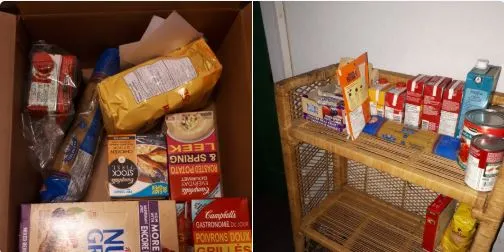I suspect many of the people reading this will think “this is not relevant to me because I don’t live in an apartment building” or “because I don’t know my neighbors” or “because greedy people will just steal from it” or “because food pantries are the government’s job” or “because I’m not poor enough to need this so reading this won’t benefit me”.
If you see the title and think you don’t need to read it, that’s a sign you need to read it. Because it’s not just about the practicalities of setting up a shared pantry - it’s about how to think about poverty and community and charity and mutual aid.
It’s a wonderful article. Read.



I really like this. Currently I just give excess to neighbors that I know will like it. We tend to swap food and other stuff too.
I would have liked to see more information about where to put one. Looking at my own complex, I don’t see a whole lot of places where I could put one. The breezeways don’t have a lot of space (and given that my partner and I are both physically disabled, I am very sensitive to making sure there is plenty of space for every one to move) and I don’t know where else we can put one out of the elements. I’m certain I can’t think of one because of my lack of imagination, not because there isn’t a good place.
It’s not like that at every apartment complex, though. At previous apartment complexes I’ve lived in, I can think of several good places to put them.
Thanks for sharing.
are there any open areas in your apartment? Think especially about entryways, common areas, etc. For example if I were to get one started in my apartment, I think the best spaces would be either near the front door by a little coffee nook or on the second floor right next to our shared library